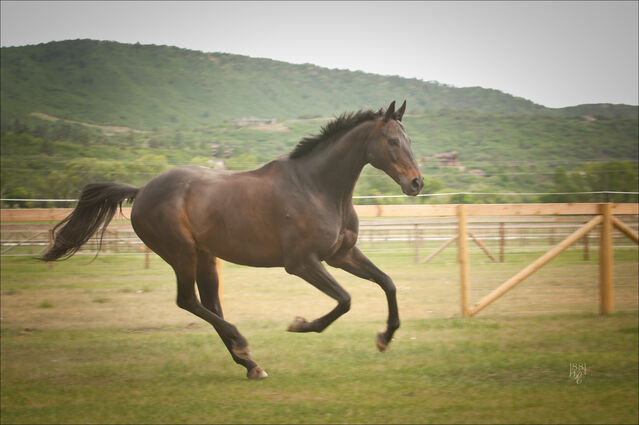Friends
Why Do Some People Behave Violently Toward Animals?
Commentary: Making sense of an act of violence at the Kentucky Derby.
Posted May 9, 2022 Reviewed by Devon Frye
Key points
- On Saturday, the horse who won the Kentucky Derby was hit for demonstrating normal equine behavior.
- Horse racing is already under fire and this incident could cause further damage.
- Bad human behavior, including displays of violence, becomes a habit, and the habit becomes automatic over time.
- Whether directed at animals or humans, it's important to stop violence at its root, before it becomes habitual.

At the Kentucky Derby on Saturday, May 7, long-shot horse Rich Strike won in a very exciting last-second rush to the finish line. Newsweek called it “one of the greatest upsets of all time in sports.”
As he cantered away, an escort horse and rider approached Rich Strike to help bring him under control. Rich Strike was visibly excited—after all, he'd just won the biggest race in the world on 80-1 odds!—and bit the escort rider’s horse on the neck. This is fairly common equine behavior when hot young horses get next to each other.
But that’s when human habit stepped in. The escort rider reached out and punched Rich Strike in the face. Today, the question is all over the news: “Did he have to punch that horse in the face?”
No, he did not. In my view, this incident is a great example of psychological habit taking over when there are multiple alternatives for better behavior. Many humane alternatives were available, including:
- The jockey could have taken stronger hold of his right rein to keep Rich Strike from turning his head to the left, toward the escort horse.
- Several other escort riders were nearby. Any one of them could have approached Rich Strike from the right-hand side and helped to straighten him using his right rein.
- With one on each side and leather leads, two escort riders could have attached to either side of Rich Strike's bridle to keep him straight.
- The escort rider whose horse was bitten could have moved away and allowed another escort rider to approach. Horses are individuals—Rich Strike might not have bitten at a different horse.
- The jockey could have dismounted a few steps away from the escorts and asked a ground handler to help him lead the horse.
That’s five simple alternatives to punching a horse in the face, just off the top of my head. Every one of them would have been more effective. There’s no excuse for punching horses. Human beings have a responsibility to use their brains to choose handling techniques that are humane.
How Habits Can Lead to Violence
Psychological habits become automatic over time. The escort rider’s punch appeared to be habitual for many reasons. It emerged immediately as his first reaction. It occurred despite the fact that the escort knew he was on live television, with the winning horse. The punch was thrown despite the fact that horse racing is nearing elimination because of animal mistreatment. It happened at the moment when there was suddenly a problem. The punch appeared so habitual that the rider did not stop to think of all the other more effective ways to address it.
This rider’s behavior is similar to what causes parents to strike their children, owners to kick their dogs, and husbands to slap their wives. Psychological frustration occurs, a violent habit emerges before alternatives come to mind, and in a split second, someone is hurt.
Did this escort hurt the horse? It depends. Horses weigh 1,200 pounds on average, but they are extremely sensitive to touch. They certainly feel pain. And let’s not forget, Derby racehorses are only 3 years old. A horse is not mature until 5 to 7 years of age; in other words, Rich Strike is a baby.
Did he harm the horse’s training? Undoubtedly. No animal can trust his handlers if they’re pummeling him in the side of the head. Did he damage his sport? In my view, yes! Horse racing is under tremendous pressure at this time. The last thing horse sports need is somebody harming the Kentucky Derby winner on TV.
Did the escort rider hurt the rest of us? I would argue he did. Think of the young children watching the race who may now think it’s OK to mistreat an animal who just performed a feat of astonishing talent and strength. Think of the parents who have to explain that behavior away. Think of the owners, trainers, and grooms who take care of Rich Strike every day and don’t like seeing him treated badly. Not to mention all the rest of us who work with horses on a daily basis and would never treat an animal that way. The last thing American society needs right now is to extend its penchant for violence and hatred to its own animals.
Rich Strike won yesterday. But the sport of thoroughbred racing may suffer lasting damage from this act.
Violent habits are not just about horses—call out the next parent you see strike or bully their child. Call the police when you see somebody kick their dog. Teach your friends and families to pause before a bad habit takes over. Pause and think of other alternatives. Practice those alternatives ahead of time. Supplant bad habits with good ones.
An equine brain does not have the capacity to think through the consequences of its actions. But a human brain does. Violence is never the answer to psychological frustration.




